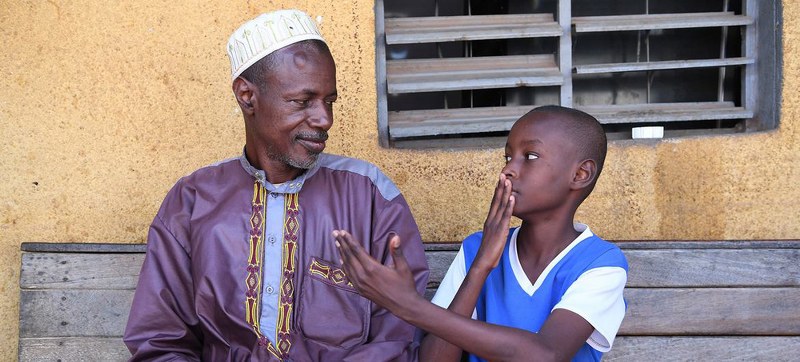 Hearing Aids
Hearing Aids
WHO study shows more than 400 million people globally need hearing aids
Over 400 million people globally need hearing aids, a study by the World Health Organization (WHO) reveals, but only 20 per cent get them due to lack of financial and human resources, as well as stigma.
“Only one out of five people are actually accessing hearing rehabilitation of those who need it,” said Dr. Shelly Chadha, in charge of WHO’s work on prevention of deafness and hearing loss, speaking to journalists in Geneva on Friday.
Ahead of World Hearing Day, marked on 3 March, she recalled that the global health agency has repeatedly drawn attention to this constantly growing problem over the last few years.
There are “several barriers” that contribute to the problem, Dr. Chadha explained, the most significant of which is the global shortage of hearing care specialists. New guidelines by WHO are bound to help overcome those hurdles.
A world that hears less
According to recent data, by 2050, nearly 2.5 billion people are projected to have some degree of hearing loss, and at least 700 million will require hearing rehabilitation. In addition, over one billion young adults are at risk of permanent, avoidable hearing loss caused by unsafe listening practices.
To address the problem, WHO is rethinking the ways hearing aid services are provided, especially in places where resources, especially human resources, are limited.
The underlying principle of the new approach is task sharing amongst highly trained specialists and trained non-specialists, WHO expert explained.
“Some of the tasks that traditionally fall under the realm of highly educated and trained specialists like audiologists can actually be done by non-specialists with some training,” Dr. Chadha said, expressing hope that this will help provide more hearing aid services to people in low- and middle-income countries.
Invest in hearing
WHO estimates that unaddressed hearing issues incur an annual fiscal loss of nearly $1 trillion globally. However, less than $ 1.40 of additional investment of per person per year is needed to scale up ear and hearing care services. Over a 10-year period, this promises a return of nearly $16 for every dollar invested.
However, human resource shortages along with the lack of policies or insufficient financing are just one side of the challenge.
Busting myths and prejudices
Even in places where testing, hearing aids and rehabilitation are available through the health system and are free, people do not always access these services, the study shows.
“As much as the health system challenges, it is the deeply ingrained societal misperceptions and stigmatizing mindsets that are key factors which limit our efforts for preventing and addressing hearing loss,” Dr. Chadha elaborated.
Myths that only older people get hearing loss or the idea that hearing aids are always very expensive or inefficient cause harm, not only to the people whose lives could be otherwise much better, but also negatively impact the economy.
Every year, WHO uses World Hearing Day to raise awareness of the problem, break the stereotypes and misperceptions thus helping more people to get life-improving assistance.
Support Our Journalism
We cannot do without you.. your contribution supports unbiased journalism
IBNS is not driven by any ism- not wokeism, not racism, not skewed secularism, not hyper right-wing or left liberal ideals, nor by any hardline religious beliefs or hyper nationalism. We want to serve you good old objective news, as they are. We do not judge or preach. We let people decide for themselves. We only try to present factual and well-sourced news.







